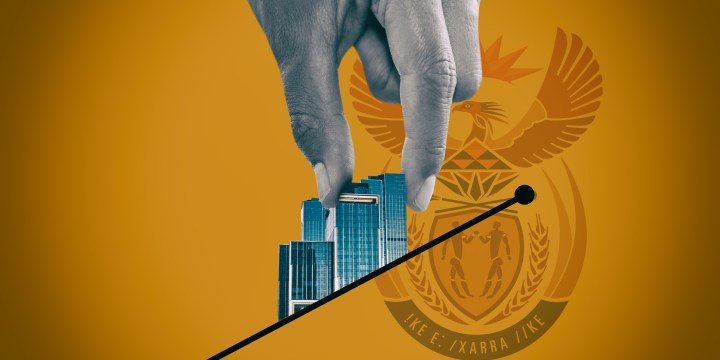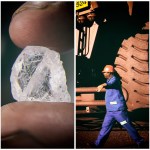SOE SOS
Amended National State Enterprises Bill still rings governance and presidential power alarm bells

State-owned enterprises (SOEs) have been a huge drag on South Africa’s economic growth rate and public finances. Now 13 SOEs have been handpicked by lawmakers to be transferred to a single state asset management holding company, instead of retaining them under the embattled Department of Public Enterprises (DPE).
State-owned enterprises (SOEs) have been a huge drag on South Africa’s economic growth rate. Now, public finances have been handpicked by lawmakers to be transferred to a single state asset management holding company, instead of retaining them under the embattled Department of Public Enterprises (DPE).
Amendments to the National State Enterprises Draft Bill, which outlines a new shareholder ownership model for SOEs, have finally listed the entities that are set to be transferred from the DPE’s oversight and control.
Some of the SOEs earmarked for transfer include Eskom, Transnet, SA Post Office, Denel, South African Airways, South African National Roads Agency, Airports Company South Africa, South African Nuclear Energy Corporation, Central Energy Fund, Sentech, South African Forestry Company, Air Traffic and Navigation Services Company, and Broadband Infraco.
This is the first time that the Bill — in its updated version that was published early last month and still under consideration in Parliament — names SOEs that are “capable” of being moved to a single state asset management holding company.
However, the updated version of the Bill still fails to mention the criteria or strategy for moving SOEs and does not mention the expected timeline for transferring the entities.
The initial aim of the Bill, when it was introduced in September 2023, was that the state asset management holding company would house SOEs and their assets when the DPE was dissolved after the general elections in 2024.
Some of the stated aims of the Bill are to reform the ownership of SOEs, removing their direct oversight from a government department to improve their governance and long-term financial sustainability.
Public Enterprises Minister Pravin Gordhan has defended the Bill, saying it would also “minimise the scope” for political interference in the operational affairs of SOEs from their line ministries — a common occurrence, according to complaints by some board members and executives appointed to the entities.
Ironically, Gordhan himself has been accused by former board members of Eskom and Transnet of meddling in their day-to-day affairs.
Read more in Daily Maverick: Eskom, Transnet ex-board members blame ‘meddling’ Minister Gordhan for executive exodus at dysfunctional SOEs
An earlier version of the Bill envisaged that the single state asset management holding company housing SOEs would have a board of directors and a CEO, and stipulated that the state (or the president) would be the company’s sole shareholder. The president, under the initial version, would be the sole representative of the company and would have the power to appoint its board.
Counterproductive
This alarmed the investment community, which argued that the Bill was counterproductive as the president’s power to appoint a board meant political interference was unlikely to end and that the SOE universe would not be depoliticised.
The latest draft of the National State Enterprises Bill now proposes that the shareholder (represented by the president) compile an eight-person panel to call for nominations, interview candidates, and recommend them for appointment.
The panel is to include a retired judge, two members of the national executive appointed by the president, a person appointed by organised business and three others appointed by the president who “have been or are chief executive officers of public companies”.
Futuregrowth Asset Management, one of South Africa’s biggest institutional investors in the debt of SOEs, said while they welcomed the proposed change to the president’s appointment powers, it still raised governance concerns.
Olga Constantatos, head of credit at the company, said there is no requirement for the president to act on the panel’s recommendations, “nor to provide a reason for not implementing the recommendations, nor an obligation to act reasonably in making these decisions”.
“Given these factors, we question whether the amendment will have the desired effect of limiting political interference in the board appointment process,” said Constantatos in a note to investors.
Futuregrowth has been a leading voice in the call for better governance at SOEs since it announced in August 2016 that it would temporarily suspend funding for six SOEs: the Land Bank, Development Bank of Southern Africa, Industrial Development Corporation, Sanral, Eskom and Transnet.
More concerns raised
The new version of the Bill is something of an empty shell in other areas.
It talks about the president working with a new body called the Presidential Advisory Committee and developing a new national strategy for SOEs, but fails to indicate how the new strategy will differ from previous ones under the Department of Public Enterprises, which has failed to reform SOEs and ensure better commercial success.
Constantatos said there are no requirements in place in the amended version of the Bill to compel the president to implement recommendations from the Presidential Advisory Committee on strategy for SOEs. In other words, the president can regard the strategy proposals as mere suggestions and not binding.
Other points of confusion and concern about the amended version of the Bill are that it does not refer to the Public Finance Management Act applying to the operational affairs of the single-state asset management holding company.
The fact that no replacement law is in place to govern the affairs of SOEs and the spending of public funds is concerning, said Constantatos.
The new Bill also allows for the transfer of land and land rights between SOEs — without mentioning the criteria for a transfer to be considered or how disputes arising from the transfer would be resolved.
A source close to business investments and government processes described the transfer of SOEs and assets to a single state asset management holding company as “a deckchair-moving exercise”.
The holding company is viewed in some quarters as a “Department of Public Enterprises 2.0 … the Bill says precious little about what this new thing is actually meant to do differently from the DPE”, said the source. DM


















Heathen prone
Absolootley “a deckchair-moving exercise”. Another questionable exercise by the ineptocracy.
Rearranging the deck chairs is exactly what this appears to be. The ANC staggers from one suspect solution to the next without ever learning anything and SA suffers the never ending consequences of this. It is patently obvious that if you ruin a country after 30 years of governance, you’re never going to get it right and must be replaced as a matter of urgency.
The problem is that the arrogant ANC have also consistantly refused to listen to advice from experts. As an example: Back in the late 90’s I know that a delegation of Eskom engineers went to parliament with a proposed plan to roll out electricity to the masses and to make sure that SA would have enough electricty going forward. They were ignored! Instead Eskom managemnet decided to invest their excess cash (yes they had cash in the bank at that stage) in money markets and then paid themselves fat bonuses on the strength of excess profits made. This was done instead of investing in new infrastructure for the good of the country. And now look where we are, all because of greed and arrogance.
The Emperor’s new clothes, chosen by the ANC Empire with no ideas so more of the same.
Another cash cow and opportunity for cadre deployment. How will it be funded?
This is by far a more dangerous proposal, as all material SOE’s are concentrated under the president – imagine the field day Zuma or Ramaposa would have, even under the new proposed governance structure.
Test
How to take away total SOE control from A without causing a rift: Establish a new entity at a massive cost and put B in charge. ANC power plays.
Running Government departments like businesses is what SA needs. Not a government (or ruling party) that thinks that making the President the sole shareholder will have the same result. Just list the appropriate entities on the Stock Exchange and let the markets rule. “Power to the People” The most powerful economic driving force is profit. Not Power.
Excellent comment and analysis. Thank you Mr Mahlaka.